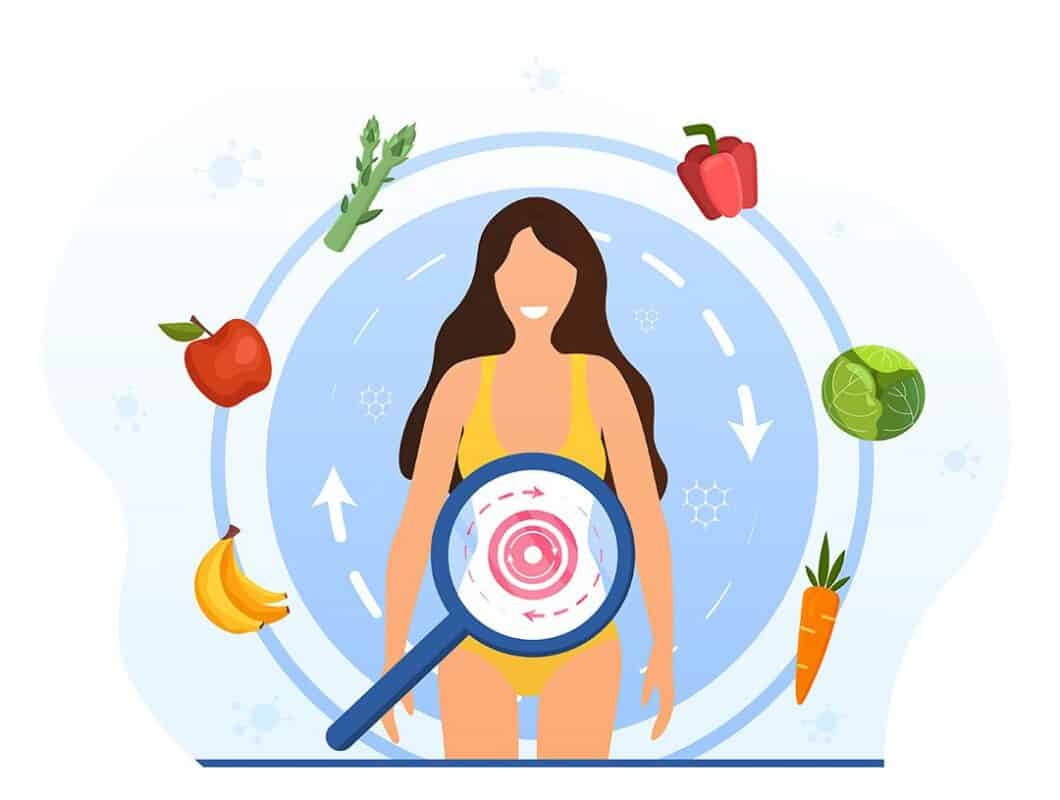A hormone balancing diet may influence those inexplicable cravings for food, thrills and sex that seem to show up out of nowhere.
We each have an internal news service that sends information from centralized departments to local areas who receive the information and act upon it.
In this metaphor the news service is called the endocrine system, the centralized departments are the endocrine glands (small organs) that generate the messages, and the cells of our body are the localities that receive the messages.
The endocrine system uses the circulatory system via the bloodstreams to send these messages — in the metaphor these would be the roads that hormones ride along in order to deliver the information.
But the delivery and arrival of hormones to cells is not a one way street. The endocrine system operates as a feedback loop, and if not enough hormones are present in the bloodstream the glands respond by producing more hormones and secreting (releasing) them into it.
The endocrine delivery and feedback loop system is what motivates and regulates outward behavior in our everyday lives.
Some of its most important functions are: metabolism, which is the efficiency of how our body breaks down food and turns it into energy; fear responses, namely the release of adrenaline to spark one into action when a threat is present; the urge towards sexual interaction to procreate; our sensation of drowsiness and the urge to go to sleep and maintain a regular sleep cycle; keeping a uniform body temperature; and maintaining a health blood pressure.
The key word in the endocrine system is “balance”. When our internal balance is disrupted it manifests as thoughts and behaviors that likewise will throw our lives into turmoil if they are not leveled out. So the question is: what are the best ways to maintain the internal balance of the endocrine system?
The short answer is: our diet and what we intake into our body, which serve as the fuel that either support a healthy supply of hormones in our bloodstream, or will cause large swings in hormonal supply, which results in unsteady and erratic behavior and therefore an unpredictable, stressful, chaotic, and debilitating way of life.
Artificial Methods of Regulating Hormones
Bad diets and the lack of exercise are the most common causes for hormonal imbalances, and often result in unwanted weight gain, negative thoughts, and at worst the development of diabetes.
Preventative measures before severe conditions arise are the best, but when an imbalance has been taken too far and treatment becomes necessary the ‘external-to-internal’ approach is a widely accepted but far-less ideal solution to endocrine problems (except for Type 1 and 2 diabetes).
These external hormonal treatments are commonly termed synthetic hormone replacement therapies, which is taking medication that contains artificial hormones that temporarily regulate the real hormones in the bloodstream.
Examples are thyroid injections, birth control, and testosterone or estrogen pills which are typically used for people who’ve decided to change their genders.
The problems with this approach is that
They are masking the underlying symptoms temporarily, and not treating the internal cause of the symptoms,
These prescription medications create a dependence, sometimes for a lifetime, and
Serious side effects occur which are very difficult to predict, such as strokes, heart attacks, cancer, reproductive problems, and others.
A casual risk-assessment between changing one’s diet and artificial hormone replacement therapies should yield a fairly obvious answer, that changing one’s diet is better long term.
But the continual prevalence of endocrine problems exposes the reality that most people are getting duped into doing what is easier, not what is effective.
Foods that Cause Hormonal Imbalances
A healthy diet based on endocrine system balance begins with what to avoid. Mass-produced foods have artificial ingredients that mimic or disrupt the flow of the hormones our glands are producing.
The two most common and devious culprits are:
Refined carbohydrates, such as potato chips, packaged snack foods, cookies, and white bread. These carbs have been stripped of all their fiber, vitamins, minerals and other nutrients and so when they are consumed they make one feel full or satisfied, which amounts to empty calories that do not signal to the body to suppress appetite.
Added sugar and refined sugar, especially in beverages, which artificially boost energy and spike insulin levels and create a less-sensitive internal environment to insulin levels.
We want a body sensitive to insulin levels so that they can be regulated with more care, whereas refined sweeteners and sugar create a more toxic and chaotic digestive tract that can lead to more serious insulin problems.
Hormone balancing diet plan
Foods that Promote Healthy Hormone Balance
Eggs
Most people consume eggs only at breakfast time but they can be eaten at any time of the day and the nutritional effects remain the same. First of all they are high in proteins which repair damaged tissue and enhance the cellular building blocks of our body.
The protein also lowers ghrelin and insulin levels which are two hormones that regulate hunger, which is why eggs make you feel fuller when compared to other foods with a similar portion size.
Salmon, Mackerel, Sardines and Fatty Fish
Fish rich in omega-3 fatty acids have been shown in experiment after to experiment to support balancing of hormonal levels, particularly adrenaline and cortisol, which are both released during stressful situations.
Overly-stressed people maintain higher normalized levels of these two, which results in a consistent state of worry. Omega-3s lower these hormones which can put one on the path to reducing the body’s overall output of stress hormones and ultimately less stress on a daily basis.
These fish are also excellent in lowering insulin levels and insulin resistance (or insulin sensitivity), so those who are pre-diabetic can take control over their condition by absorbing these fatty acids.
Cruciferous Vegetables
Brussels Sprouts, broccoli, arugula, cabbage, cauliflower, etc. are rich in sulfur and help to detoxify our livers while also cleaning out excess estrogen levels. Before our liver can detoxify the excess estrogen it needs to first remove other toxins, so these vegetables help spur along this process and takes some stress off our livers.
Also, our adrenal glands can become overworked when our body is producing excess estrogen, and elevated adrenaline levels not only adds stress to our day but eventually leads to chronic fatigue. So balancing estrogen levels is an important factor to consider with balancing overall hormone levels.
Avocado and Olive Oil
Our sex hormones are cholesterol-based, so eating avocados raw is a great way to supplement the body’s available cholesterol to balance testosterone and estrogen.
Adding olive oil on top of a salad is also a great way to ingest a fat-rich substance.
Grass-fed butter and ghee are also excellent methods to supplement our need for a healthy production of these powerful ones in a hormone balancing diet.


















